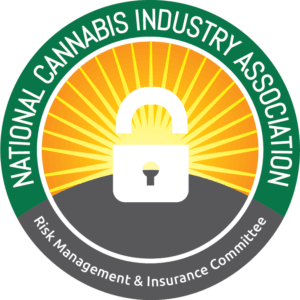 by Jesse Parenti, Programs Director of Nine Points Strategies, Stephanie Bozzuto of Cannabis Connect Insurance Services, Matthew Johnson, Vice President of QuadScore Risk Services, and Helkin Berg, CEO of Strimo
by Jesse Parenti, Programs Director of Nine Points Strategies, Stephanie Bozzuto of Cannabis Connect Insurance Services, Matthew Johnson, Vice President of QuadScore Risk Services, and Helkin Berg, CEO of Strimo
Members of NCIA’s Risk Management and Insurance Committee
If your company has an “auto exposure” such as delivery, distribution, or employees simply running company errands, your company needs a robust risk management program.
Managing a fleet is essential to ensure drivers are given the necessary tools to be safe and responsible while on the open road. Implementing a vehicle maintenance program is also a necessary component of fleet management.
Proper automotive risk management starts with driver guidelines on how you hire your drivers and what is required to qualify to be employed by your organization. Best practices on age, driving experience, motor vehicle reports, and training make for a great start. Even though your employees may think they are only delivering or transporting cannabis, they are commercial drivers, and they need to take that duty very seriously. Morbid as it may sound, death is not the worst thing that can happen…
Here are some best practices:
- Drivers should ideally be at least 25 years old with five years of driving experience. For the best insurance pricing and experience, you should hire drivers that are between 35-55 years old. Note that commercial drivers over a certain age will face increased pricing from insurance companies much like their youthful counterparts. Keep that 22-year-old with four speeding tickets off your policy, even if they are the business owner’s relative!
- Only hire drivers with squeaky clean driving records. Experienced drivers with a clean record are more likely to continue to drive this way when working for your organization. If you hire drivers with violations or points on their records, expect this level of driving to continue when working for you. Drivers don’t often change driving habits just because of their employment status. Note that age and driving records directly affect commercial auto rates.
- Set up an Employee Pull Notice Program or Motor Vehicle Report pull program through the DMV. A “pull program” ensures that you are aware of your drivers’ violations in real-time, whether the violations happen during or outside of work. Suppose a driver is out of compliance based on your insurance carrier guidelines. In that case, your insurer can deny a claim based on your driver’s record or violations that happened while employed by your organization, even if the violation occurred outside of work. If you are not monitoring your drivers, you would never be aware of these concerns or problems. Secured motor vehicle records (MVR) storage is also crucial to protect your employee’s personal information. Make sure you backup all your records in the cloud or a protected server network. Identity theft can happen quickly, and unprotected data will create cyber liability exposures if not protected correctly.
- Take cell phone, texting, or distracted driving violations very seriously. Distracted driving is the #1 cause of death and accidents since 2012 and is increasing yearly as time goes on. The NHTSA reports that an estimated 1.6 million accidents in 2020 were caused by distracted drivers too busy eating, texting, smoking, etc., to keep their eyes on the road. Suppose one of your drivers has a distracted driving violation. In that case, you can rectify it by having them take a distracted driver class to understand the gravity of such infractions. Then put that driver on probation with consistent monitoring of their MVR for 18-24 months to ensure they don’t continue to have these violations.
- Onboarding driver training must include how to drive defensively, what to do if you are held up for a robbery, and what to do if you are pulled over by the police. This training makes a world of difference when or if any of these take place. In addition to robust onboarding training, training needs to continue over time as safety never stops, and good practices always need to be reinforced.
Here are some examples of claims to give you an idea of what could happen to you:
- A large distribution company hires a driver and has them complete some training in a large, empty box truck. This training helps the driver understand how to drive and brake with a(n empty) truck. The next day the driver goes out with a full load of cannabis flower and concentrates in their truck. The driver notices that the truck is handling differently than when it was empty. A wind picks up just as the truck is taking a turn. The truck rolls onto its side and totals the box on the truck, damaging the product inside. The company could have avoided this accident had they trained their driver in real-life experiences, with actual loads.
- A driver is delivering cannabis to a customer’s home. While en route, the driver accidentally hits a pedestrian crossing a sidewalk on a poorly lit street. The driver did nothing wrong, but the accident still caused permanent disability to the man who was the head of the household, and the insurance company paid out over $7M. If the insured didn’t have the $10M in auto liability, they would have had to close their doors.
You and your employees can do everything right, but accidents can and will still happen. That is why culture, safety, and accountability are essential when working in the transportation and delivery space. If you don’t take this seriously, your company will pay the price. To avoid these costly mistakes, work with your legal team, insurance providers, and software vendors to ensure ideal policies, training requirements, and data storage.
——————————————————————————————–
Nine Point Strategies is a national risk management firm specializing in all forms of commercial auto for the cannabis industry. We can help you with anything you need concerning hiring, training and maintaining all your required driver compliance you need to be a safe and profitable organization. Contact us to discuss how we can better protect your cannabis auto exposures.
QuadScore Insurance Services is the nation’s leading insurance provider for marijuana businesses. QuadScore offers comprehensive property & casualty solutions as well as a full suite of risk management services for large cannabis companies around the United States.
The Strimo™ team is comprised of industry veterans. We are both practitioners in cannabis and long-time experts in software. We have supported companies in rapid growth and deeply understand that your software needs to grow with you. Strimo is the leading enterprise cannabis SaaS platform.
Cannabis Connect Insurance is a specialty division of Bozzuto Insurance, an insurance firm serving businesses since 1978 and part of Acrisure, LLC the 4th largest insurance brokerage in the United States. We specialize in connecting cannabis business owners with custom built insurance programs.Cannabis Connect was founded on basic principles of honesty, integrity, and trust. We are actively involved in the cannabis industry on both a local and state level. We are involved in multiple cannabis associations and continue to remain informed on policy forms and legislative changes to ensure our clients best interests come first.


Follow NCIA
Newsletter
Facebook
Twitter
LinkedIn
Instagram
–